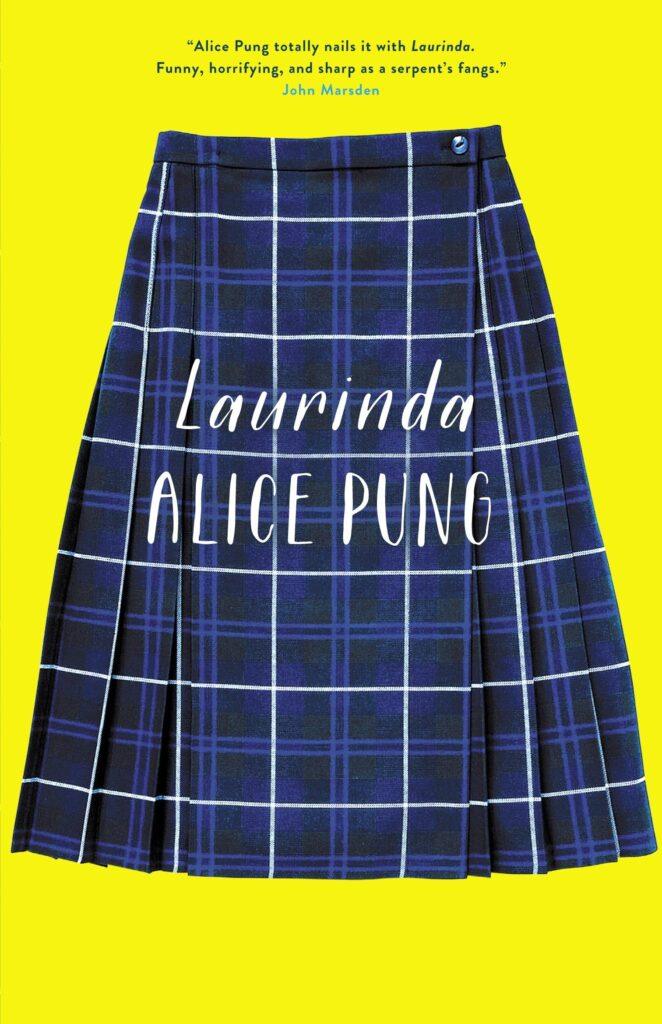Pung, Alice Laurinda Black Inc., 336 p., ISBN 9781863956925 SCiS 1685025
Until now, Alice Pung has written and edited only three hugely popular and highly acclaimed non-fiction titles. Laurinda is her first fiction book, written for a young adult audience. It’s lengthy (and weighty), and early on I wished Pung could be more succinct, and less concerned with the small details. However, as I persevered, I realised the significance of all those exquisite lines of text: they moved Laurinda from a simple school story about a girl trying to fit in, to a complex exploration of power and class.
Which might make it sound pretentious, but it’s certainly not that.
Pung presents her narrator, Lucy Lam, in an unusual manner. Lucy writes directly to a character called Linh, who remains off-page. It seems the intrusion of a seemingly irrelevant person, but she cannot ultimately be ignored. This complex structure adds another layer to the book, but it will probably be a difficulty for some readers.
The plot is straight forward: Lucy has won (to everyone’s surprise, including her own) a scholarship to a prestigious girls’ school in Melbourne. She enters at the beginning of Year 10, unsure, shy, and mostly silent, and the story takes us through this first year. Her sharp observational skills contrast the posh community of her classmates with the suburb in which she resides with her first generation immigrant parents and baby brother. Lucy struggles initially with the higher academic expectations, but quickly learns how to play the games of essay writing, arguing a case, and impressing teachers.
The main conflict is the existence of the Cabinet, a trio of girls who preside over the Year 10 cohort. It is stereotypical in that obvious YA trope—they are mean and petty, and take glorious enjoyment in tearing other girls down. The narrative moves into Robert Cormier territory when they focus their attention on one of the teachers. These toxic girls, Amber, Brodie, and Chelsea, provide much of the tension of the book. Will they ensnare our meek and mild narrator? (Somewhat.) Will they assimilate her into their soul-destroying methods? (In a way.) What will Lucy learn? (All manner of things, of course.)
The best scenes in the book are those with Lucy’s family. Through their presence we see Lucy for the brave, patient, and resourceful girl she is. Her little brother, cutely named ‘the Lamb’, has a pivotal role, and Lucy’s mother is an amazing woman who even had lessons for me.
Laurinda starts slowly and builds with careful, thoughtful details. Lucy’s gains are hard-earned and she has constant revelations, then revises them as she becomes more aware. The lesson for all of us is that bullies only get control when we hand it to them. It is a great addition to the growing number of YA books that give voice to diverse characters.
reviewed by Trisha Buckley





